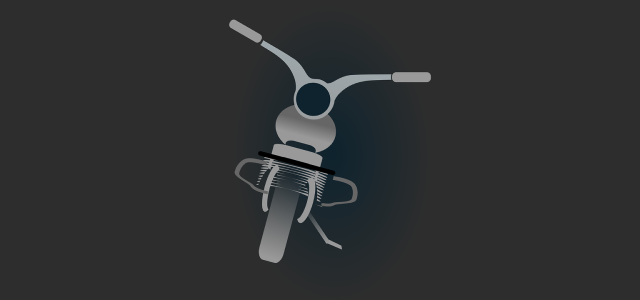 The recent litigation over the iconic Indian trademark ‘Yezdi’ has brought legal issues related to ownership of a trademark by a company under liquidation to the limelight.
The recent litigation over the iconic Indian trademark ‘Yezdi’ has brought legal issues related to ownership of a trademark by a company under liquidation to the limelight.
‘Yezdi’ bikes, manufactured by Ideal Jawa (India) Pvt. Ltd. (hereinafter referred to as “Ideal Jawa”), were a rage during the late Seventies and throughout the Eighties in India. However, the production was stopped in 1996 and the company was wound up in 2001.
Last month, the High Court of the Indian State of Karnataka ruled that Ideal Jawa was the owner of the trademark ‘Yezdi,’ even though the company was under liquidation.
Chronology of events
ideal Jawa (India) Private Limited, was incorporated on 22.09.1960. It was promoted by Mr. Rustom Irani, whose son Mr. Boman Irani was also a director of the company.
On 09.10.1969, registration of the mark ‘Yezdi’ in Class 12 bearing No. 283322 was granted to ideal Jawa.
On 25.07.1991, a company petition was filed for the winding up of the company. The company was wound up on 17.08.2001 and the Official Liquidator was appointed to take over the Company and oversee the winding-up process.
On 05.10.2007, the Trademark Registry removed the ‘Yezdi’ mark in Class 12 bearing No. 283322 from the Trademark Register.
During 2013 and 2014 Mr. Boman Irani filed applications for registration of a few marks containing ‘Yezdi’ before the Trademark Registry and the trademarks were granted in his favor.
In 17.06.2015, a company, Classic Legends Pvt. Ltd. (hereinafter referred to as “Classic Legends”) was incorporated by Mr. Boman Irani and Mahindra and Mahindra.
In January 2022, ‘Yezdi’ bikes were relaunched by Classic Legends in January 2022.
In 2018, an application was filed by Ideal Jawa to declare the trademark registration certificates issued to Mr. Boman Irani as null and void.
Later in 2020, the Official Liquidator and Ideal Jawa (India) employees’ association also challenged the registration of ‘Yezdi’ marks in Mr. Boman Irani’s name.
Decision
The Court declared that Ideal Jawa was the owner of the mark ‘Yezdi’ and that the trademarks of the Company remained in custodia legis of the Court. All trademark registration certificates issued by the Registrar of Trademarks in favor of Mr. Boman Irani were declared null and void. The court restrained Mr. Boman Irani and Classic Legends from using the mark ‘Yezdi’ including all domain names which used the mark ‘Yezdi.’
Court also declared that Mr. Boman Irani and Classic Legends were liable to account and pay the Company for all gains made from the use of the trademark ‘Yezdi.’ The Official Liquidator was permitted to sell all trademarks and such other associated rights in and over the trademarks of Ideal Jawa with all goodwill associated with the mark by public auction. Besides, Mr. Boman Irani and Classic Legends were directed to pay costs to the Official Liquidator in a sum of Rs.10 Lakhs each which should be utilized towards the costs and distribution to be made in the process of winding up of the company. The decision is appealable.
Comments
The decision dealt with several significant legal issues which are relevant while formulating the trademark strategy of a business. I will highlight two significant rulings in this regard.
One, the assets of the Company under liquidation including the trademarks are “custodia legis” (in the custody of the law) and any disposition thereof would be void unless the Court orders otherwise. The disposition of property of the Company could be adjudged only by the Company Court under the provisions of the Companies Act and the Trademarks Registrar had no power to remove the registration in the name of Ideal Jawa or to grant registration in favor of Mr. Boman Irani.
Two, the trademarks were registered in the name of the company and not in the name of Mr. Rustom Irani. Hence the trademark right in ‘Yezdi’ did not devolve on the son as legal heir upon cessation of business.
Conclusions
The Court categorically declared that Trademark Registrar had no right to decide on the disposition of property under liquidation. Thus, cessation of business and the removal of the trademarks owned by a company under liquidation does not entitle a third party to apply for fresh registration of those marks and claim trademark rights.
Besides, the case settled the legal position regarding the devolution of trademark rights in the name of a company under liquidation, on the legal heirs. If trademarks are registered in the name of a company promoted by the father, the goodwill in respect of trademarks does not devolve on legal heirs upon the cessation of business by the company.
The case goes a long way in deciding the trademark ownership rights of a company under liquidation.
Written by Sunil Jose, an Indian Intellectual Property lawyer who focusses on trademark and branding strategy for businesses, SUNS LEGAL Intellectual Property.











